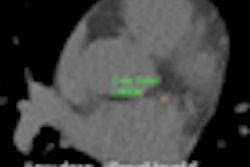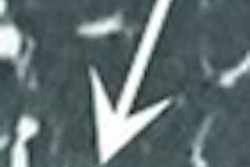Dear AuntMinnie Member,
The U.S. government late last week moved to simplify its Byzantine framework for regulating PET radiopharmaceuticals with a proposal that could make it easier for oncology PET tracers to win Medicare reimbursement.
The U.S. Centers for Medicare and Medicaid Services is proposing that local Medicare administrative contractors determine their own coverage policies for oncology PET imaging with approved tracers. That would change existing policy, which stipulates that Medicare won't pay for studies with a particular oncology PET tracer unless there's a specific national policy in place for that agent.
The change is expected to have the biggest effect on new oncology PET agents being developed; unfortunately, it doesn't yet apply to neurology and cardiology radiopharmaceuticals. But PET proponents see a crack in the door that they hope to widen. Learn more by clicking here, or visit our Molecular Imaging Digital Community at molecular.auntminnie.com.
ACR Select makes progress
One of the more intriguing stories we've been following in 2012 is the formation of ACR Select, a joint project to develop clinical decision-support software based on the American College of Radiology's (ACR) Appropriateness Criteria.
The project has the potential to create an industry-wide standard for appropriate imaging utilization that is available to referring physicians at the click of a mouse via their computerized physician order-entry software. The idea is that such software would be a more elegant way to control imaging utilization than blunter tools such as radiology benefits managers or even reimbursement cuts.
ACR Select made its debut at last month's RSNA 2012 meeting, and we bring you an update on the project via an interview with executives from National Decision Support Company, which is helping ACR commercialize its clinical guidelines.
Read the interview by clicking here, and if you'd like even more details on the project, check out the full interview in an AuntMinnieTV WebShow segment on our YouTube channel, available by clicking here.
CT radiation risk
A study published this week in Radiology is questioning whether the fears about CT radiation dose might be a bit overblown.
Researchers from Massachusetts General Hospital conducted a study on the mortality risks presented by testicular cancer to a hypothetical 33-year-old male, and compared them to the mortality risk presented to that same patient from the CT scans that he might receive as part of his workup.
Perhaps unsurprisingly to anyone in radiology, the risks of the underlying disease far outweighed those of the CT scans. Learn more by clicking here, or visit the CT Digital Community at ct.auntminnie.com.




















